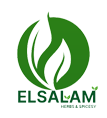Popcorn seeds, also known as popcorn kernels, are a special variety of corn (Zea mays everta) that pops when heated, creating a popular and tasty snack. Popcorn has been enjoyed for thousands of years, with evidence of popcorn consumption dating back to ancient civilizations in the Americas. Here’s a comprehensive look at popcorn seeds:
What Are Popcorn Seeds?
- Botanical Characteristics:
- Unique Variety: Popcorn is a type of flint corn with a hard outer shell and a starchy interior. Unlike other types of corn, the kernels contain moisture that, when heated, turns into steam and causes the kernel to explode or “pop.”
- Shape and Size: Popcorn kernels are small, round, and hard. They come in various colors, including yellow, white, red, and blue, although yellow and white are the most common.
- Popping Process:
- Heat and Steam: When popcorn kernels are heated to about 180°C (356°F), the moisture inside the kernel turns to steam. The pressure from the steam causes the kernel to explode, turning the inside starch into a fluffy, edible piece of popcorn.
- Popcorn Shapes: Popped kernels generally take on one of two shapes:
- Butterfly (Snowflake): These kernels have irregular shapes with protruding “wings,” which hold toppings well.
- Mushroom: These kernels pop into a round, ball-like shape and are sturdier, making them ideal for caramel or candy coatings.
Nutritional Benefits of Popcorn:
- Whole Grain:
- Fiber: Popcorn is a whole grain, meaning it contains all parts of the grain, including the bran, germ, and endosperm. This makes it a good source of dietary fiber, which supports digestive health.
- Low in Calories:
- Healthy Snack: Air-popped popcorn is low in calories, making it a healthy snack option. One cup of air-popped popcorn contains about 30 calories.
- Rich in Antioxidants:
- Polyphenols: Popcorn contains polyphenols, a type of antioxidant that helps protect cells from damage caused by free radicals.
- Gluten-Free:
- Dietary Restrictions: Popcorn is naturally gluten-free, making it a safe snack for those with celiac disease or gluten sensitivity.
- Vitamins and Minerals:
- Vitamins: Popcorn provides small amounts of vitamins such as B vitamins (thiamine, niacin, and folate), which support energy metabolism.
- Minerals: It also contains minerals like magnesium, phosphorus, and zinc, which are important for bone health and immune function.
Culinary Uses of Popcorn Seeds:
- Popcorn Snacks:
- Air-Popped Popcorn: Kernels are popped without oil, using an air popper or stovetop method, for a light and healthy snack.
- Stovetop Popcorn: Kernels are popped in a pot with a small amount of oil, allowing for even popping and the addition of flavors like butter or salt.
- Microwave Popcorn: Pre-packaged popcorn bags designed for the microwave offer a convenient way to enjoy popcorn, though they often contain added oils and seasonings.
- Flavored Popcorn:
- Savory Popcorn: Common flavorings include butter, cheese, nutritional yeast, herbs (like rosemary or thyme), and spices (like chili powder, garlic powder, or smoked paprika).
- Sweet Popcorn: Popular sweet varieties include kettle corn (sweetened with sugar), caramel corn, and chocolate-coated popcorn.
- Gourmet Popcorn: Flavored popcorn varieties can include unique ingredients like truffle oil, sea salt, or matcha powder for a more gourmet snack.
- Popcorn Balls and Treats:
- Popcorn Balls: Popped popcorn is mixed with a sticky syrup (like corn syrup, honey, or melted marshmallow) and shaped into balls, often enjoyed during holidays or as a special treat.
- Popcorn Trail Mix: Mix popped popcorn with nuts, dried fruits, and chocolate or candy pieces for a customizable trail mix.
- Cooking and Baking:
- Popcorn-Crusted Dishes: Crushed popcorn can be used as a coating for chicken or fish, adding a crunchy texture and unique flavor.
- Popcorn Toppings: Use crushed popcorn as a topping for salads or soups to add a crunchy element.


Reviews
There are no reviews yet.